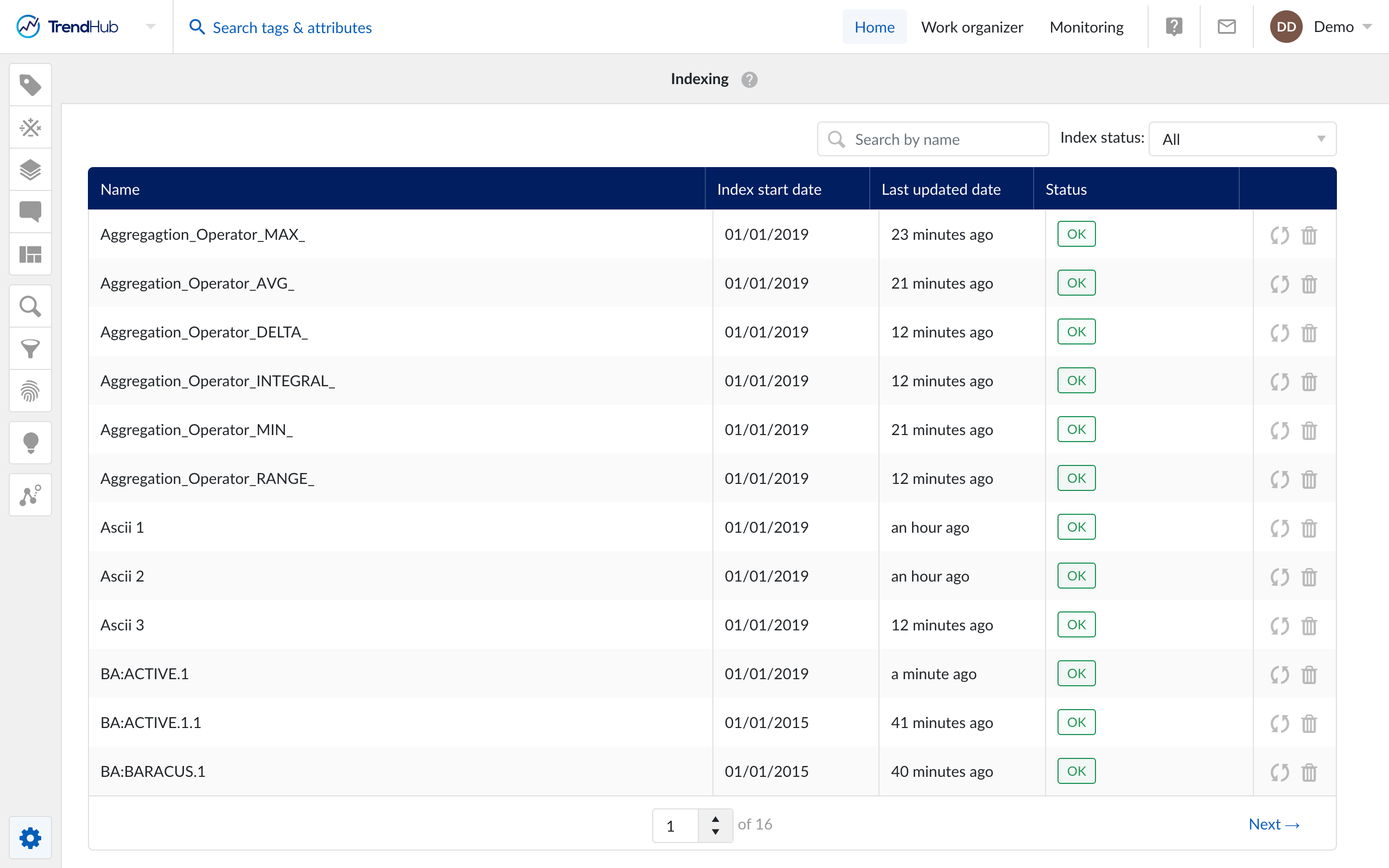Index manager screen
What is the index manager screen?
The first time a tag is used, either by adding the tag to the focus chart or by running a batch-indexing script, the full history of the tag will be indexed. Afterwards, TrendMiner will keep the indexes of these tags up to date.
Why use the index manager?
Indexing happens backwards in time to make sure that recent data can already be searched, while waiting for the older time periods to be indexed. Tag data are refreshed every hour. It is crucial to understand the status of tag indexing as this relates directly to the quality of any TrendMiner analysis.
How to use the index manager
The index manager screen can be found in TrendHub via the settings menu on the bottom left of the screen (little cog icon).
Note
The settings/index manager is only available to users with the 'application administrator' role. This role can be assigned via user management in ConfigHub.

Use the index manager to search through your indexed tags by:
Sorting on index start date and last updated date;
on name;
by filtering on index status.
You can easily identify any indexing problems by looking to the index state column:
Index State | Explanation |
|---|---|
 | Tag completely up to date. Backwards indexing was successful and recent data was successfully appended. |
 | Backwards indexation process in progress. Will switch to OK after completion. Data which is indexed can already be used in the analyses. |
 | Backwards indexing was performed but an error (e.g. historian connection loss) occurred during this process. The Index start date indicates where the backwards process stopped. The indexation will automatically be retried when the tag is used again (e.g. the tag is added to the chart). Since the index state 'Out of date' gets priority over the state 'Incomplete' an incomplete state indicates an indexing issue related to one specific month in the tag history, and not a structural connection issue with the data source (if no recent index data can be fetched either the tag will show an 'Out of date' status). In case of a calculated tag the issue can be caused by an indexing issue for one of the underlying tags. For a historian/data source tag the issue could be related to wrong data being returned for a specific time period or out of order points due to a daylight savings time switch. As a result the incomplete status implies that recent data was successfully appended for the tag. |
 | Recent data was not successfully appended (e.g. due to historian connection issues), delaying potential monitoring events. This state gets priority on incomplete state. Continuous indexing will keep trying to update this tag's index, even if the tag is not explicitly used. |
 | TrendMiner is unable to update the index of the tag (tag or dependent tag does no longer exist). TrendMiner will disregard these tags when updating the most recent data. If the root cause is resolved, the indexation process will automatically resume when the tag is used again. |
 | In the event that the responsible service for indexing goes down, tags which were in progress will go to failed. These tags should be reindexed afterwards to complete backward indexing and ensure the index correctness. |